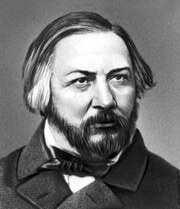........Cultural exchange is an important aspect of the promotion of Ireland in Russia and vice versa. Against the backdrop of Ireland and Russia there is a rich heritage in the arts, literature and design. The cultural sector works primarily through the network of RIBC abroad and in co-operation with government departments, state bodies and individuals. The cultural section supports the members of RIBC initiatives in regard to the holding of Irish and Russian cultural events, including exhibitions, concerts, readings and lectures.
www.ireland.ru
........The Russian-Irish Business Club sponsors the website www.ireland.ru. Its purpose is to promote the development of mutual relations between Ireland and Russian speaking countries, public and private institutes, and between the citizens of Ireland and Russia including, of course, you!
Book on Ireland in the Russian language
........We are delighted to inform you of the publication of ‘Perceptions of Ireland’, a new illustrated book on Ireland in the Russian language. Please see >>>>
Russian-Irish philosopher Vladimir Petcherine
........RIBC is planning the erection, in Dublin, of a monument to honour Vladimir Petcherine (1807-1885) philosopher, philologist, lecturer, researcher, philanthropist, poet, publicist, theologian and priest, who died and was buried in Dublin in 1885. As you know:
- V. Petcherine was made Professor by his colleagues.
- The Russian writer Mikhail Lermontov named him "A Hero of Our Time".
- The Russian Government, whose influence spread across the people, called him Jesuit, which in Russian had implications an untrustworthiness, after having confiscated his property through the courts and prohibing him to return to Russia.
- The publisher of the London journal Bell, A.E. Gertsen, described V. Petcherine as 'an exceptional thinker'.
- The prime minister of Soviet Russia (1924) I. M. Sverdlov was the first to officially recognise V. Petcherine's status as a political refugee.
- As the first priest in Ireland's first Irish Maternity Hospital he was considered a hero among the Irish Catholic population.
- V. Petcherine was the first Catholic in Irish history to have a charge made by a Protestant against him dismissed in the Court of Law.
- For some in 1990s Russia the name V. Petcherine came to mean dissident.
From a history of cultural relations Ireland - Russia
The founder of the Russian classical music was Michael Glinka.

His
teacher was the unusually gifted Irish Pianist John Field (1782-1837)
who created the innovative romantic genre, the Noctume. He participated
in the creation of Russian orchestral music and died and was buried
in Moscow in 1837.

Midi
file: Nocturne
n.1 (4' 08'', [St. Petersburg, 1812])